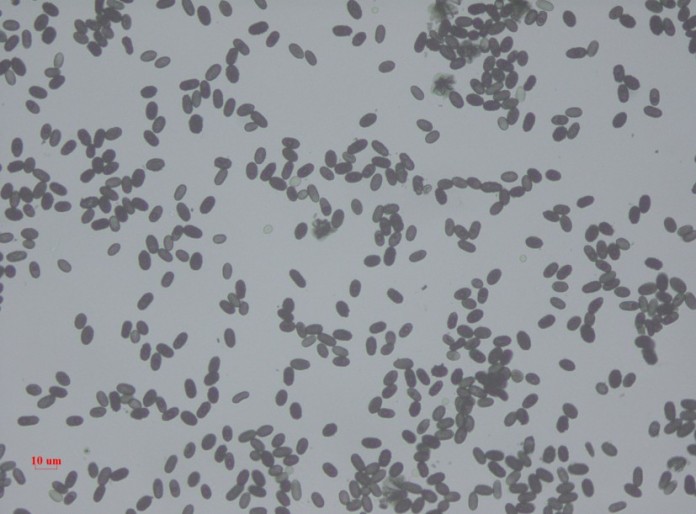Mold in your environment – no matter your home, work, or school – can pose a serious risk to your health. While not all molds are dangerous, the Stachybotrys chartarum species of mold, also known as “black mold” can be toxic. This type of mold is commonly found in damp, warm areas such as bathrooms and basements. It appears as a dark green or black slimy film. It can also become dry and powdery to the touch.
Many people aren’t aware that molds may carry serious health risks and can even be deadly. Health experts are now in wide agreement that molds can be more toxic than heavy metals. Mycotoxins, the substance produced by molds can wreak havoc on our bodies, affecting our nervous system and suppressing the immune system.
Just how serious is mold in our homes and public spaces? According to mold expert Dr. Jack Thrasher, about 40 percent of U.S. schools and 25 percent of homes have mold infestations. In fact, he believes the problem is reaching a pandemic level. The good news is that most mold found in homes is NOT Stachybotrys. All visible mold, even if not Stachybotros, still needs to be removed for optimal health.
Health Risks Associated With Black Mold Exposure
Health problems stemming from black mold goes beyond the occasional sneeze, headache or other symptoms associated with mold allergies. Black mold is known to be toxic to all the systems in our body – from our immune system to our nervous system.
Some of the most severe symptoms associated with mold contact include damage to the heart, infertility and possibly even cancer. Research suggests that because black mold is similar to toxic molds that produce aflatoxin mycotoxins (a carcinogen), black mold may also cause cancer in some individuals.
Mental and Neurological Symptoms
Trichothecene mycotoxins that are produced by toxic black mold can kill neurons in the brain and impair a person’s mental ability. In addition, black mold can cause tremors, irritability, shaking, seizures, learning disabilities and a host of other mental and neurological issues.
Respiratory Symptoms
When you breathe black mold, you are inhaling toxic black mold spores and mycotoxins, which can cause difficulty breathing, wheezing, and generally irritate the nasal cavity, throat, and mouth. See a doctor immediately if you experience any of these symptoms or others including bleeding gums or tightness in the chest. At its worst, toxic black mold can cause pulmonary edema, a life-threatening condition.
Circulatory System
The mycotoxins in black mold can find its way into a person’s blood stream, where it may cause serious health conditions concerning blood clotting, internal hemorrhaging, or bone marrow depletion.
Does My Home Have Toxic Black Mold?
Considering how much damage Stachybotrys, or toxic black mold, can do to our bodies, it’s important to make sure our homes are free of it. If you see dark green or black mold, contact a professional mold company and schedule an appointment to have your home tested. Your test will reveal what types of molds are growing in your home and what the next steps should be to remove it.
You should also have your home tested if you or your loved ones are having mysterious symptoms….or you smell musty, damp odors. All molds, including Stachybotros, may not be visible. They are often discovered in walls, behind walls, under flooring, behind cabinetry, and under wallpaper. Many times unusual symptoms are “written off” by the medical community as something else. Oftentimes, mold is not even “on the radar” of differential diagnosis.
If you want to test for mold on your own, you can purchase a variety of mold-testing kits from hardware stores. For most, you will be instructed on how to remove a sample of mold from your house and to send it off for proper testing by laboratory. Some of these kits can also determine what mold spores are circulating in the air in your home. I do not recommend the “instant” or “5 minute” tests. Samples need to be sent to an appropriate lab for evaluation.
Should I Remove Toxic Black Mold Myself?
NO! In my opinion, attempting to remove Stachybotros is much too dangerous! Hire a professional mold remediation company.
Please remember: The only acceptable level of Stachybotros in a home or business is ZERO!
—
Photo credit: Dr. Sahay / CC BY-SA 2.0









What’s up to every body, it’s my first pay a quick visit of this web site;
this blog contains amazing and truly good material for readers.
I got this site from my buddy who told me on the topic of this website and
at the moment this time I am browsing this website and reading very informative content at this time.
Hello,
Thank you for your kind words. I invite you to signup for my free weekly Natural Health Newsletter at http://www.AskDrMaxwell.com.
Dr. Maxwell
It’s scary that black mold can cause neurological problems. The consequences of being exposed to mold are one of the reasons I do all I can to prevent it. Even if there no signs of it in your home, I suggest having remediation services take a look around you home.
Hello Mr. Estrada,
I agree. We need to be proactive. I frequently suggest this to my patients.
Dr. Maxwell
I recently had and unprovoked pulmonary embolism. Shortly thereafter, I found black mold in my home due to a leaking hot water heater. I also had small pains and discomfort in my lungs that are tough to describe. We moved into a rental while the clean up and repairs are being made to the house. We have been out 5 nights to this point, the pain and discomfort is virtually gone. I asked the Hematologist that I have been seeing if there is a connection between the mold and my health issue. She does not believe there is any possible connection. I am having a hard time accepting that answer. I see here that pulmonary edema can be attributed to black mold. In your opinion could this also be the case for pulmonary embolisms?
Hello Mr. Cunningham,
I am sorry to hear about the recent difficulties you have had.
I am glad you discovered, and remediated, the black mold in your home.
Among the possible causes of pulmonary embolism is exposure to toxic black mold, although this is not often considered by the medical community.
I wish you the best of health!
Warmest regards,
Dr. Maxwell